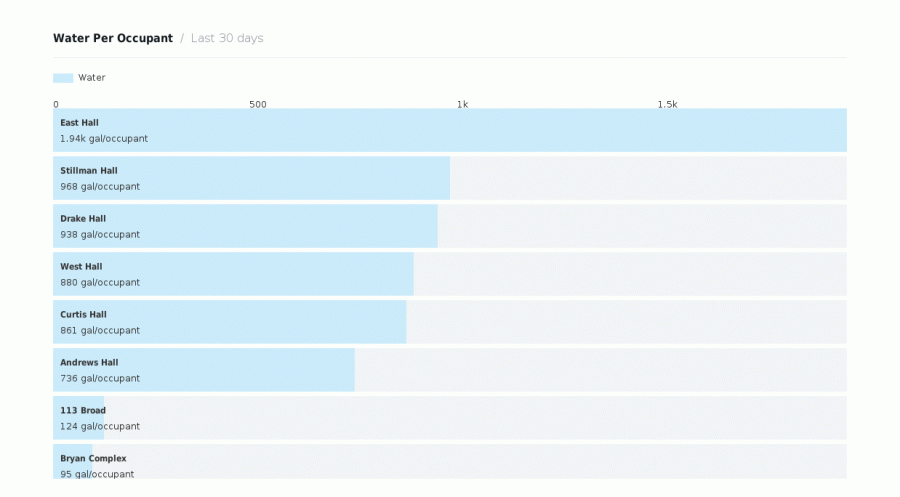Watch How You Wash: Do Your Laundry Sustainably
While it might seem like doing laundry is just shoving a bunch of clothes in a machine and coming back an hour later when they’re done, there’s so much more to it than that. Small things like laundry can actually have a big impact on water and electricity use for a residential building. As an intern for Colgate’s Office of Sustainability and the head of the Residential Engagements Committee, which specifically focuses on water and energy usage in the residential buildings on campus, I have first hand knowledge of how much of a difference laundry can make for a building’s water bill.
The Office of Sustainability tracks how much water, steam and electricity the dorms use through a program called BuildingOS. This system allows us to compare the energy usage of dorms and create energy bills which we post in the residence halls each month. For the past couple of months, East Hall has begun to use more and more water. In fact, in the past 30 days, East Hall has increased its usage by 40 percent, rising to 1,940 gallons of water per occupant. If this doesn’t shock you enough, we can compare this number to it’s direct neighbor, West Hall, which uses only 880 gallons per occupant, over 1,000 gallons less than East Hall. Compared to all of the other dorms averaged together (roughly 657.43 gallons per occupant), East Hall uses 195 percent more water.
Even though I am making an example of East Hall, the following lessons are important for everyone to think about, because we all need to learn to conserve water. Here are some helpful tips which are important to think about during and beyond Colgate and that will help you save water, electricity and money!
Wear it more than once: The average load of laundry takes 40 gallons of water to clean so if it isn’t dirty, don’t clean it! Wearing clothes more than once also helps you save money because you don’t need to do laundry as often.
Only do laundry if it’s a full load: You don’t need to be using a full laundry cycle for just a few garments. Wait until your laundry hamper is full to do laundry, and you’ll save on money, water and electricity.
Wash your clothes using cold water: Ninety percent of the energy used in washing clothes comes from heating up the water. By using the “brights” option on dorm laundry machines you can use cold water. With modern detergents, warm water is actually not necessary to keep your clothes clean.
Hang up your clothes to dry: Air drying things keeps them from shrinking, helps them to last longer and doesn’t use energy in the process. If you feel the need to use the dryer, choose the “delicates” option, as it uses the least amount of energy to heat it up.
Use Quick Cycle for small loads: If you have a few pieces of laundry that need to be washed, use a quick cycle! It uses less water than a normal cycle, and your clothes will dry faster too.
Contact Maggie Dunn at [email protected].





